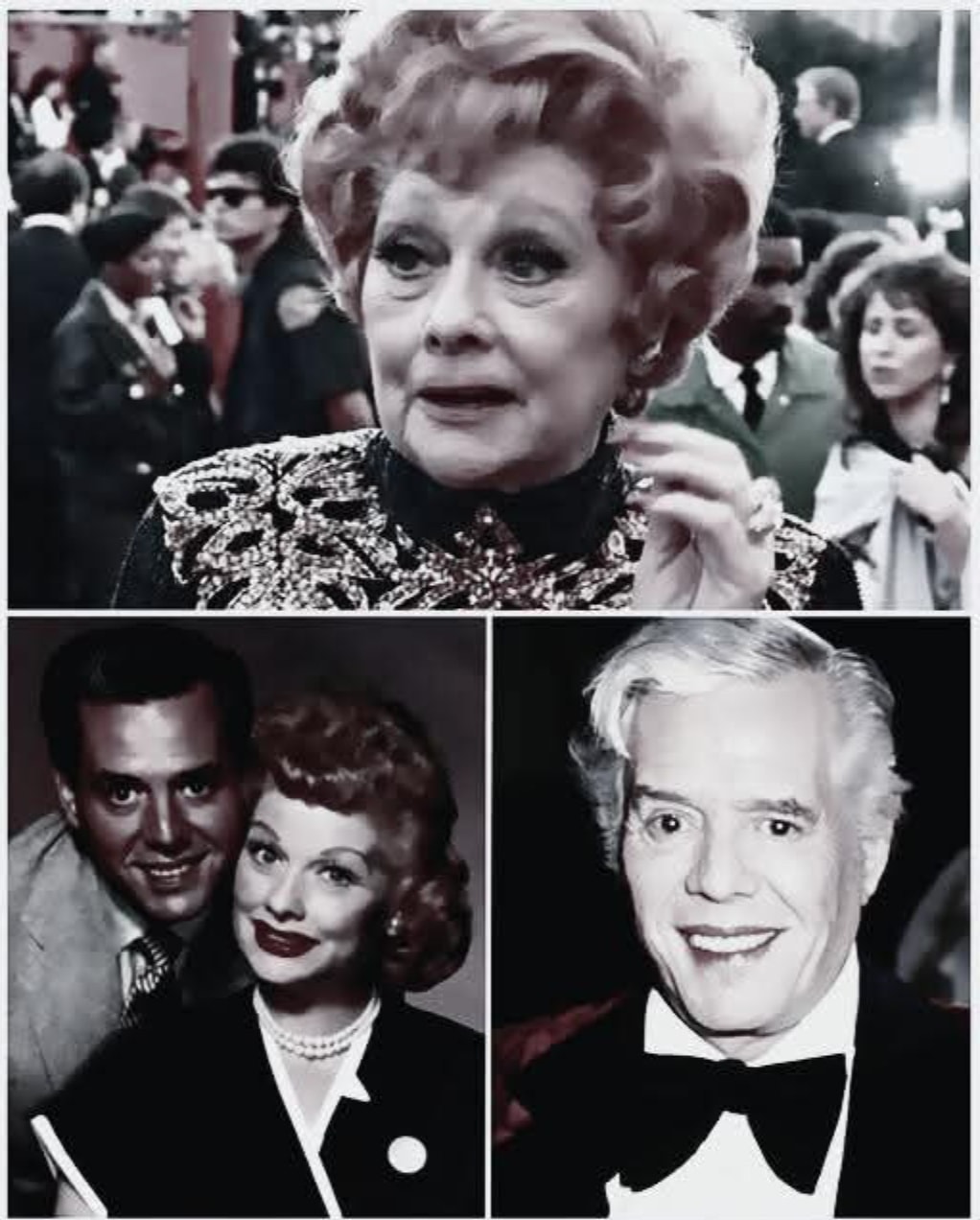In 1986, as Desi Arnaz lay in his bed at his Del Mar home, weakened by advanced lung cancer, a call came through. It was Lucille Ball. She had heard he didn’t have much time left. They had been divorced for more than two decades, but on that night, time and pain dissolved. Lucille didn’t wait for pleasantries. She spoke softly into the phone. His daughter, Lucie Arnaz, standing nearby, watched tears well up in her father’s eyes. He kept repeating, “I love you. I love you. I love you.”
It was one of Desi’s final lucid moments. Hours later, his condition worsened. Two days after that call, on December 2, 1986, he passed away. But what lingered was the sound of Lucille’s voice, and Desi’s unwavering affection echoing back.
They had once been Hollywood’s most electric couple. Their chemistry burned through the screen on “I Love Lucy”, a show they co-created through Desilu Productions. Audiences saw the laughter and chaos, but beneath the comedy was a marriage built on real passion, complicated loyalty, and the relentless pressures of fame.
Their romance had begun in 1940 during the filming of “Too Many Girls”. Lucille, already a rising film actress, was struck by Desi’s charisma the moment he stepped onto the set. Within six months, they married. But the years that followed were anything but easy. Desi’s long tours with his orchestra, rumors of infidelity, and the stress of maintaining a public image took a heavy toll. Lucille filed for divorce in 1944 but reconciled shortly after. By 1951, they were back on stable ground, launching “I Love Lucy”, which would revolutionize television and make them household names.
Their success didn’t erase the strain in their private life. In 1960, Lucille finally filed for divorce again, and this time it was final. She once admitted it was the most painful decision she had ever made. Still, even through heartbreak, their bond never fractured entirely. They co-parented their children, Lucie and Desi Jr., and continued to collaborate on business matters. Lucille took over Desilu Productions after the divorce and led it to even greater heights, but she never downplayed the foundational role Desi had played.
Throughout the years, they kept in touch. There were birthday calls, conversations about their kids, and quiet exchanges no one else was privy to. Friends and family often described a sense of unfinished love between them. In interviews, Lucille avoided discussing the deeper reasons behind their divorce, but she never stopped referring to Desi with a tenderness that betrayed her lingering feelings.
In 1986, when Lucille learned of Desi’s terminal diagnosis, she was living in Beverly Hills, having married comedian Gary Morton. Yet when she spoke of Desi to close friends, it was clear he still held a permanent space in her heart. That final phone call wasn’t planned as a goodbye. It came from something deeper, an instinct to reach across the years and remind each other of the connection they never truly let go of.
Later, Lucie Arnaz shared publicly what happened that night. “It was incredibly moving,” she said. “He was mostly incoherent by then, but he knew it was her. And when she spoke, he answered with those words, over and over again.”
When a reporter once asked Lucille if she had ever stopped loving Desi, she gave the most honest reply she could: “Never.” No elaboration. No hesitation.
Lucille Ball passed away in 1989, less than three years after that final conversation. Those who knew her say she kept a photo of Desi in her dressing room until the end.
Their story ended not with signatures on divorce papers or the fade-out of a hit show, but with one final “I love you” whispered across a phone line, spoken with clarity, and heard with a heart that had never let go.
